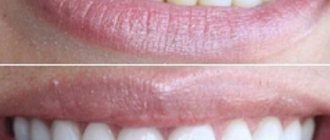Who is a dentist?
Dentist is a unifying definition applied to a dental specialist with higher education. (Stoma, stomatos means mouth in Greek, logos – teaching). To become a dentist, you need to graduate from a medical academy, institute or university.
The duration of their studies is at least 5 years. Along with dental diseases, future dentists study many medical sciences - biochemistry, physiology, therapy, histology, etc.
They are prepared not only theoretically, but also practically, having completed a one-year internship or a 2-year residency.
Principles of training
If you decide to become a dentist, then you need to understand that this profession is very responsible. Therefore, it is necessary to obtain a medical education.
Those who are interested in dentistry are wondering: how long to study to become a dentist and what is needed for this. To enter a university, you must:
- complete 11 grades in a secondary school;
- pass the appropriate exams in biology, chemistry and Russian.
It is necessary to understand whether a person is ready for this profession. To obtain a specialty in this field, you need good study and a specific goal, as well as the ability to find an approach to even the most picky and harmful patients.
What is the difference between these concepts?
The difference between a dentist and a dentist is the level of training and the type of treatment they can perform.
The list of works provided for in the job description of a dentist includes:
- A dentist is a general specialist
diagnostics;
- treatment of relatively simple diseases of teeth and gums - gingivitis, stomatitis, caries and some others;
- removal of teeth not complicated by periodontitis;
- treatment of simple maxillofacial injuries.
- carrying out physical procedures;
- consultation regarding the choice of oral hygiene products;
- cleaning teeth from plaque and tartar, and some others.
In case of more serious dental pathologies - malocclusion, pulpitis, periodontitis, periodontal disease, lesions that have caused tooth destruction by more than 50%, and in other cases requiring the participation of a more trained specialist, the dentist gives the patient a referral to a dentist of the appropriate specialization.
A dentist is a general specialist. He has theoretical knowledge and practical skills sufficient to perform therapeutic, orthodontic, orthopedic and surgical operations.
Although, like a dentist, when faced with a particularly difficult case, he can refer the patient to a doctor of a narrow specialization.
History of the profession
The very first mentions of dental therapy are found in the history of Ancient Egypt. Tools similar to modern analogues have been found more than once in tombs. Many more Egyptian skulls with crowns on their teeth were also discovered there, and these were not only rich people. Judging therefore, it can be said that some types of dentistry were developed in Egypt. In addition, the first toothpaste was mentioned at the same time . It included:
- ashes of the burnt entrails of a bull;
- ground eggshell;
- myrrh;
- crushed pumice.
Then in the IV-V centuries. BC, the great Hippocrates became interested in this science. He recommended eliminating pain with a hot iron. At that time, many people suffered from toothache and did not understand how to deal with it. Fatalities from common flux were common, and during the time of Hippocrates, dentistry advanced several steps forward.
In your free time from work, you can earn extra money
on freelance exchanges (by writing comments, reviews, or simple actions on social networks) - choose what you like best and start earning money!
The first toothbrushes appeared in the Middle East in 500 AD. And in the 4th century AD. e. found forceps used to pull out bad teeth. And also powerful drugs that relieve pain appeared: arsenic and opium. Therefore, people began to understand that there is no need to rush to remove teeth, but that they can be treated. So, in 659 the first fillings appeared.
This specialization developed, and already in Russia, during the reign of Peter I, the profession of dentist officially arose, and rapidly became popular among men and women. In 1881, the first educational institution appeared in St. Petersburg, which trained future dentists. Then such institutions began to open throughout Russia.
February 9 is considered to be International Dentist Day, which falls on the day of St. Apollonia. After all, it was she who accepted martyrdom for Christ. She was tortured with forceps, which caused hellish pain.
Narrower specializations
The large number and complexity of pathologies of the dentofacial apparatus, the constant improvement of existing treatment technologies and the development of new ones require in-depth, specific knowledge and skills from dentists.
This feature has found its implementation in the concept of narrow specialization of dentists.
Depending on the type of work performed, the following specializations of dentists differ:
- therapist;
- orthodontist;
- surgeon;
- orthopedist;
- hygienist;
- pediatric dentist.
Dentists often combine several specializations at once.
Dental surgeon
The prerogative of the profession of a dental surgeon is the following operations:
- Dental surgeons often treat diseases that are within the competence of dentists of other specialties
tooth extraction;
- treatment of neoplasms in the PR;
- elimination of TMJ dysfunctions, diseases of the salivary glands and trigeminal nerve;
- primary treatment of wounds and injuries of the mouth, neck, face;
- plastic surgery and reconstruction of jaw bones;
- operations on periodontal tissues (gingivectomy, gum pocket removal, soft tissue transplantations, gingivoplasty, plastic surgery of the oral vestibule and frenulum);
- correction of tooth position anomalies.
- implantation.
Dental surgeons often treat diseases that are within the competence of dentists of other specialties: phlegmon, periodontitis, sinusitis, periostitis, abscesses, osteomyelitis.
They also diagnose specific diseases, the symptoms of which may appear in the PR - syphilis, tuberculosis, actinomycosis.
Dentist-therapist
Typically, patients who seek help from a dentist first see a therapist.
Dental therapist is the broadest specialization in dentistry.
Typically, patients who seek help from a dentist first see a therapist, who in most cases is able to deal with their problem alone.
The job description of a dental therapist provides for the following work:
- examination of the oral cavity;
- diagnosing;
- treatment of teeth (caries, pulpitis, etc.) and periodontal disease (gingivitis, periodontitis, periodontal disease, periodontitis);
- preparation of PR for prosthetics, its sanitation;
- teeth whitening and PG;
- preventive examination and advice on caring for RP.
When pathologies are identified that urgently require the participation of a specialist doctor, the therapist refers the patient to them.
Orthopedist
An orthopedist restores teeth using prosthetics
A doctor of this specialization is engaged in the restoration of dilapidated, missing or lost aesthetic teeth using prosthetics.
Orthopedist:
- takes impressions of teeth, from which the dental technician subsequently makes a prosthesis;
- tries on, adjusts and secures the prosthesis on the patient.
Prosthetic structures include crowns, bridges, inlays, veneers, and removable dentures.
Orthodontist
The orthodontist adjusts the position of teeth using removable and non-removable orthodontic devices
Orthodontics is a subsection of dentistry dedicated to dental anomalies.
The scope of practice of an orthodontist includes:
- prevention of deformations of individual teeth, dentition and jaws;
- normalization of occlusion;
- correction of jaw development;
- teeth straightening.
Correction of the position of teeth is carried out using removable and non-removable orthodontic devices - mouthguards, braces, braces.
Children's teeth at the stage of formation and growth are most successfully corrected. In adults, this process is much more difficult.
General dentist
The specialty “General Dentistry” was introduced by orders of the Ministry of Health No. 553 and 112. This specialty is of particular importance for rural areas, where it is desirable to have a specialist who can provide assistance in several clinical areas.
However, until now, due to a number of organizational, educational and legal problems, general practice in dentistry has not received proper development.
Children's
Children and adolescents under the age of 17 are patients of the pediatric dentist.
A child's teeth have many differences from adult teeth. This includes the presence of baby teeth, the constant renewal and formation of the dentofacial apparatus, and the inability to use certain anesthetics for children.
And the reaction of children to the dental chair creates increased problems.
A dentist treating children must not only be able to distinguish pathology from the age norm, detect deviations in bite and tooth formation in time, but also be a bit of a psychologist.
Hygienist
The goal of a hygienist is to prevent dental diseases
Dental hygienist is a relatively new specialization in dentistry.
Its goal is the prevention of dental diseases, its field of activity is dental hygiene, proper dental care.
A dental hygienist performs the following work:
- diagnosing RP diseases;
- professional teeth cleaning;
- disease prevention;
- training in proper dental care skills;
- educational activities (inspections in kindergartens, schools, institutions, organizations, enterprises).
Resume sample
To find a job faster, you need a resume that can be sent to several companies at once. You need to know how to compose it correctly.
The resume must include:
- Full Name;
- Date of Birth;
- contact details: phone, email;
- citizenship;
- experience;
- basic and additional education;
- professional skills;
- knowledge of languages;
- personal qualities.
The resume should be simple and understandable; there is no need to write or invent a lot, because then in practice all the qualities and abilities of the specialist will be assessed.
Categories of dentists
Dentists are required to confirm their qualifications every 5 years
Each dentist has a certain qualification category, which is an indicator of the level of his theoretical knowledge and practical skills.
The procedure for assigning a qualification category is determined by order of the Ministry of Health of the Russian Federation.
Dentists are required to confirm their qualifications every 5 years.
Those who wish to improve their qualifications themselves must wait 3 years from the date of the last certification.
Regulatory documents provide for three types of categories in ascending order:
- second (is basic);
- first;
- highest.
Requirements for various categories:
| Category | Requirements |
| Second | Work experience in the specialty for at least 3 years. Successful completion of certification. |
| First | Work experience in the specialty for at least 7 years. For a specialist with secondary education – at least 5 years. Successful completion of certification. |
| Higher | Work experience in the specialty for at least 10 years. For a specialist with secondary education – at least 7 years. Successful completion of certification. |
Salary and place of work
As mentioned earlier, the profession is in demand and profitable. Therefore, dentists have a wide choice of places to work:
- public and private clinics;
- dental offices;
- sanatoriums and children's institutions.
Factors that affect wages are length of service, qualifications and region.
Salaries in the specialty range from 30,000 to 100,000 rubles, and in large cities you can earn much more. As practice shows, in private clinics the income is much different compared to public clinics. On average, it is 45,000 rubles.
What should you be concerned about?
Be careful if your chosen dentist:
- Offers the most expensive treatment without communicating alternative options. A good specialist, on the contrary, talks in detail about the different treatment options, costs, advantages, and disadvantages of each, leaving the choice to the patient.
- Does not draw up a detailed plan, increases the initially stated price, and prescribes additional conditions in the contract that are unfavorable to the patient.
- Includes procedures that were not provided on the check.
- Forces expensive services, such as implantation, in situations where a filling or crown is sufficient.
- Treats non-existent diseases, scares with complications.
If you doubt the treatment proposed by your doctor, visit 1-2 more specialists. Show them the test results. This will give you several independent opinions and allow you to compare different treatment plans. Choose a doctor whose opinion coincides with the majority. By the way, you have nothing to lose, since the initial consultation in many clinics is free.
Cost of dental treatment
A good dentist performs dental treatment professionally and competently, but you will need to strictly follow his advice in order to maintain the results for a long time. The cost of dental treatment will directly depend on what specific problem needs to be solved and how large-scale it is.
Therapeutic dentistry is a type of medical care that involves the prevention, diagnosis and treatment of oral diseases. The main objects of attention of a dentist-therapist are teeth, gums and oral mucosa.
How is the diagnosis made?
If the development of dental diseases is suspected, various methods of diagnosing pathologies are used.
If we are talking about pulpitis or caries, the tooth’s reaction to cold and hot is monitored. An accurate examination will allow you to identify caries (damage to dental tissues by bacteria, subsequent destruction of the element), periodontitis (inflammatory process in the ligament or canal) and pulpitis (cavity inside the tooth).
To reliably indicate the sensitivity threshold of a tooth, electroodontodiagnostics (exposure to electric current) is used.
In the process of identifying pathology of the oral cavity, chemical tests cannot be done without. The material from the source of the disease acts as a sample; it is sown on nutrient media. If a chemical reaction is detected, the dentist begins treatment.
Useful recommendations for patients
- Do not wait until your tooth hurts, because in an emergency you will have to contact any available specialist. Choose a dentist while your teeth are fine. This can be done during preventive visits 2 times a year.
- During your first visit, try to establish contact with the doctor, ask questions, listen carefully, and show respect. Try to understand how comfortable you are with this person, whether you can find a common language.
- Do not be content with verbal agreements with the dentist, carefully read the contract with the clinic, try to see the pitfalls, especially in the section with treatment prices.
Reviews
Much has been said here about the importance of reviews. Leave your impressions of visiting dentists under the article, share your experience or recommend a really good specialist!
If you find an error, please select a piece of text and press Ctrl+Enter.
Tags teeth
Did you like the article? stay tuned
Previous article
Luxnir - a flawless smile in two visits to the dentist
Next article
Unique properties of Forfenan paste for use in endodontic dentistry











